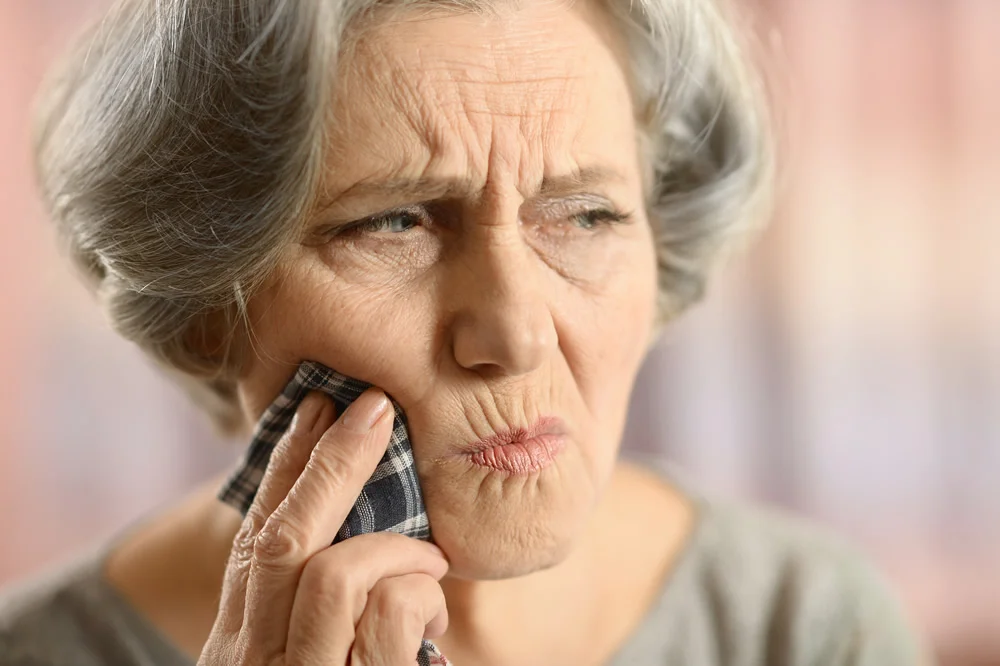In this articles we discuss 6 most common Dental issues faced by Seniors so, Getting older can bring a whole host of oral health issues. Years of wear and tear on the teeth, as well as certain medications and medical conditions can result in a range of oral problems in older adults. In addition to causing pain and infection, tooth decay can even lead to tooth loss. To avoid the painful effects of tooth decay, visit a dentist regularly and schedule regular checkups.
Dry mouth
Many of us take medications to treat various conditions, but there are other causes of dry mouth. Some of these medications have side effects that can adversely affect the mouth, including diabetes, anemia, Parkinson’s disease, and even some types of cancer. Other causes of dry mouth include infections, alcohol abuse, and trauma to the mouth. This article will discuss some of the most common causes of dry mouth in seniors and how to prevent it.
Older adults tend to have a lower saliva production, making it more susceptible to oral health issues. As a result, seniors may experience bad breath, mouth sores, and increased tooth decay. The main prevention for dry mouth in seniors is to visit the dentist on a regular basis. Moreover, seniors often need frequent dental exams to maintain optimal oral health. In addition to visiting the dentist for routine cleaning, seniors should avoid eating a lot of sugary or fatty foods.
Aging teeth are more vulnerable to decay and cavities than those of younger people. A dry mouth may cause an increase in these problems, so it is important for senior citizens to take care of it. Seniors should make an appointment with their dentist every 6 months for regular cleaning. However, if dental care is not a priority, it can cause serious problems. Dry mouth can be a symptom of a more serious ailment, such as diabetes, heart disease, and kidney disease.
Gum disease
Unfortunately, most older adults experience gum disease. Although it can be avoided with good oral hygiene, advanced cases can result in tooth loss. However, early stages of gum disease are treatable. If you notice that your gums are sore or bleed when you brush, it is time to visit your dentist. It’s estimated that nearly half of all seniors are affected by gum disease. In fact, one in five seniors over 65 has some form of periodontal disease.
Luckily, gum disease treatment is highly preventable. The most important step is to brush your teeth twice a day, reduce the intake of sugary foods, and drink plenty of water. If you find yourself brushing your teeth less frequently than you used to, you might want to invest in an electric toothbrush. Your dentist can also recommend fluoride rinses or fillings and crowns. Fortunately, most people with this condition can avoid it altogether with proper oral hygiene and regular visits to the dentist.
Sadly, aging and poor oral health make gum disease the most common dental problem faced by seniors. In fact, nearly two-thirds of senior citizens suffer from gum disease, also known as periodontitis. In advanced stages, this disease can lead to sore, bleeding gums and even tooth loss. Unfortunately, many people do not even realize they have the condition until it is far advanced. But good oral health can prevent advanced stages of the disease, as well as prevent tooth loss.
Tooth loss
Approximately 27 percent of senior citizens will lose all of their teeth at some point. It happens because the tooth enamel, which is the hardest substance in the human body, wears down over time. Once these teeth are lost, they are not going to regrow on their own. The good news is that you can prevent the loss of your teeth by maintaining proper oral hygiene and going to the dentist regularly. Here are some tips to help you maintain your teeth and gums.
One of the most common dental problems faced by senior citizens is tooth loss. In fact, one in five adults 65 and older have lost all of their teeth. Complete tooth loss is twice as common in seniors 65 and over than in other age groups. Aside from being embarrassing, missing teeth can also impact the nutrition of the mouth. People who do not have teeth tend to eat foods that are easier to chew, such as soft foods. Fresh fruits and vegetables are often out of reach.
The most common dental problem experienced by senior citizens is tooth discoloration. The aging process exposes teeth to more damaging substances than those of younger adults. Some of these substances include sugar, coffee, and tobacco. Moreover, they frequently consume certain types of foods, which can cause teeth to become discolored. Therefore, it is important for senior citizens to schedule regular dental visits to keep their teeth in good condition.
Periodontal disease
While tooth decay is not a major problem for younger adults, it is common for seniors to experience cavities. As a result, one out of five seniors over 65 has lost a tooth. These cavities can negatively impact a senior’s health, as they may not have the necessary nutrition to enjoy a variety of fresh foods. Besides that, people with gum disease are more likely to develop other diseases, such as oral cancer, which is twice as common in men. Therefore, it is important to visit the dentist regularly to prevent any problems.
Fortunately, periodontal disease is preventable. Brushing twice a day, following a healthy diet, and visiting the dentist at least twice a year are effective ways to reduce the risk of developing cavities. If symptoms do appear, such as sore or bleeding gums, it is imperative that you see a dentist for an examination. A dentist can recommend treatments to address the underlying problem.
While regular cleaning and checkups are important for seniors, many seniors neglect their oral health as they age. Neglecting dental care is a major contributor to periodontal disease in old age. Regular dental checkups will help prevent these conditions before they lead to tooth loss and gum disease. Older adults often neglect dental health because they can no longer properly chew food. Consequently, they may not eat the healthiest foods. In addition to bad dental health, some medications can cause oral discomfort and even pneumonia.
Denture-induced stomatitis
This condition is not contagious, but it is treatable, and it usually clears up on its own with proper denture hygiene. In some rare cases, the disease can be treated with low-energy laser therapy. It is often caused by small nodules that form on the roof of the mouth, which interfere with the functioning of dentures. A minor surgery is needed to remove these nodules.
It is believed that the condition is caused by a variety of factors, including the presence of biofilms on the surfaces of dentures. In many cases, it is a result of the mechanical irritation caused by dentures containing C. albicans. The condition can also be triggered by specific allergens found in chewing gums, mouthwashes, or other substances. If a person is suffering from the disease, treatment may involve removing suspected allergens or taking antihistamines.
Infection and thrush are other causes of stomatitis. Denture-wearers tend to be older. Hence, years of denture wear have worn away the outer layer of the teeth, exposing the inner dentin. Dentin is naturally yellow in color and stains easily from tobacco or beverages. Additionally, denture wearers often smoke, which can lead to a distinctive yellow staining of their teeth.
Denture-induced thrush
Elderly people tend to stop visiting the dentist as a result of their health. While there are many reasons for this, the most common is a poor fit for dentures or other dental problems. This can lead to the buildup of fungus, or candida, which results in denture-induced thrush. Seniors are also more likely to experience this problem if they are on medications that affect the immune system.
While the fungus is not contagious, it is transmitted from person to person, and the infection may develop if the affected person is infected with candida. Symptoms of denture-induced thrush may appear during a routine dental checkup. A dentist can determine if the patient is suffering from the disease based on the pattern of redness in their mouth. If necessary, they may take a sample of the patient’s saliva and send it to a pathology lab to be tested for fungi.
Thankfully, this condition can be prevented and treated with a good oral hygiene routine. First-line treatment for stomatitis is an anti-fungal medication. This is typically given in the form of lozenges or ointments. Oral stomatitis may also be treated with low-energy laser therapy. In addition to medications, doctors may recommend a saliva substitute to help patients avoid oral thrush.
Get More Information:
Apartments for Rent in Oakland CA
Sell Your House for Money in Los Angeles
5 tips Real Estate Marketing for 2022
car accident lawyer chicago langdonemison.com
Employee Recognition Ideas Your Staff Will Love
5 Compelling Benefits of Baseball for Kids







